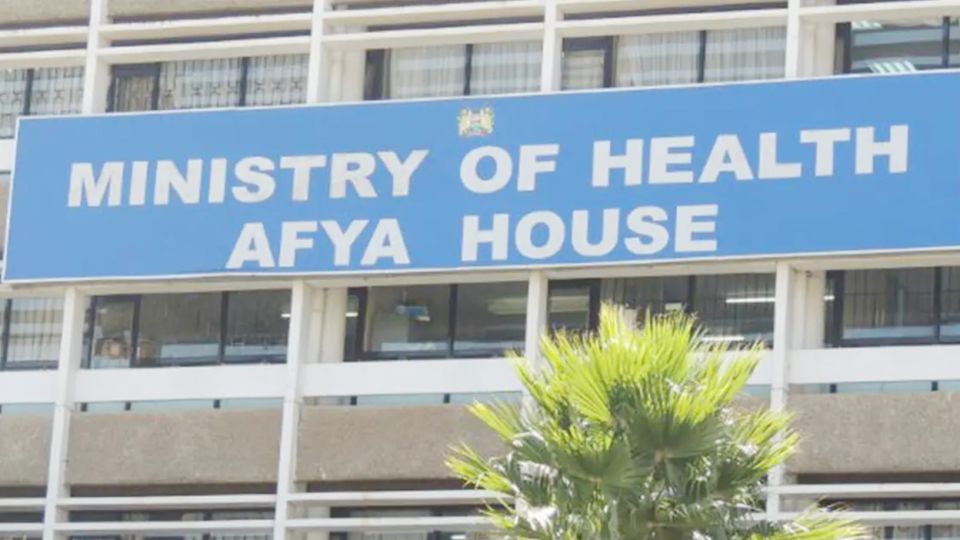The Government is set to transition from the National Health Insurance Fund (NHIF) to Social Health Insurance Fund (SHIF) starting tomorrow.
The move follows the enactment of the Social Health Insurance (SHI) Act 2023.
Proponents of the new plan have chided NHIF for the existence of fragmented pools targeting different populations creates inefficiencies, which result in increased costs of health services,”
SHIF proposes three consolidated pools to address the inefficiencies.
According to President Ruto, the transition was necessary because a high number of Kenyans are currently being subjected to financial constraints due to catastrophic illnesses.
He noted that the new platform promotes equity and fairness in contribution, through households and not individuals.
Although the government has touted the new health plan as a lever to extend health cover to every citizen in irrespective of their ability to pay for healthcare, queries have emerged around the rush to implement, tendering process, benefits to contributors and hiked rates.
By Monday, a day before the rollout, a paltry 1.8 million people had registered against the government’s target of at least 19 million people. The state rolled out a nationwide registration campaign on July 1.
Why is the government hurrying us? What was wrong with NHIF? What happens to patients who are yet to register but are in urgent need of the fund? Where will our NHIF contributions go?
These are just among many questions on Kenyans mind, with the majority now insisting that the government extend the registration period before rollout.
“The government must come clean on these matters if it wants to win contributors’ confidence,” Richard Omondi, a mechanic along Kirinyaga Road in downtown Nairobi told the Business Standard.
He also wants the government to address tendering concerns around the management system of the new national health coverage plan, especially allegations of conflict of interest.
“Is this new system being launched to benefit Kenyans or is it just another tendering scheme to benefit the rich? We have not been told why NHIF failed and those in charge held responsible, ‘wonders Paul Onsongo, an auto spares dealer in Nairobi.
Last week, the government revealed that Safaricom will lead a consortium that includes Apeiro Ltd and Konvergenz Network Solutions Ltd to provide IHITS.
It said that this is a key infrastructure for implementing SHIF which is replacing the over six-decade long NHIF.
According to a statement from Safaricom signed by CEO Peter Ndegwa, the three firms will invest approximately Sh104 billion over a 10-year period to implement, maintain and support the IHTS System starting in February 2025.
An analysis of the new plan shows that Unlike NHIF , SHIF has increased packages both for in and outpatient and covers various aspects of both chronic basic medical needs.
Unlike the NHIF which recognises a single spouse, a polygamous contributor can include multiple spouses (under the Marriage Act) and children (below 25 years as beneficiaries under their cover.
Even so, contributors are concerned that compensations under the fund are extremely low despite hiked rates.
Proposed tariffs under this new scheme show that the fund will cover Sh2,000 for outpatient services for general healthcare in Level 2-4 facilities.
It will cover Sh3,500 for level 4 inpatient services up to a maximum of 50 days. Those in Levels 5 and 6 will be given Sh4,000 and Sh5,000 respectively.
For maternity services, the fund will offer Sh11,200 for normal delivery and Sh32,600 for cesarean section. For renal care, SHIF will give beneficiaries Sh10,500 per person for hemodialysis and Sh180,000 monthly for peritoneal dialysis.
For mental health, the fund will give Sh1,200 for outpatient care and Sh3,400, Sh4,000 and Sh5,000 for inpatients in levels 4,5 and 6 facilities.
The fund has also lined up several benefits for cancer patients, including Sh5,000 for chemotherapy administration, PET scan Sh 53,000, CT Scan Sh9,600 and MRI Sh11,000.
It will also fund various medical imaging services, including an MRI tariff of Sh11,000, a CT scan of Sh9,600 and Sh4,000 for fluoroscopy.
The new plan also boosts outpatient services where beneficiaries will now get lab tests for diabetes, heart disease, sickle cell anemia, and asthma at higher-level facilities in levels 4-6 hospitals.
Unlike NHIF which recognizes a single spouse, a polygamous contributor can include multiple spouses (under the Marriage Act) and children (below 25 years as beneficiaries under their cover.
A person who has attained the age of 25 years and has no income of his/her own and is still living with the contributor(parent) shall be treated as a household separate from the contributor and shall pay Sh300 per month.
Under the current NHIF, Kenyans are deducted between Sh150 to Sh1,700 for salaried workers and Sh500 for self-employed.
In this new regime, all workers are expected to contribute 2.75 per cent of their salaries towards the new health fund.
Contributions have been made, in such that not all Kenyans contribute an equal amount.
Under SHIF, those earning Sh20,000 will be deducted Sh550, with Kenyans getting Sh50,000 paying Sh1,375.
Kenyans earning Sh100,000 will be deducted Sh2,750, and those getting Sh200,000 will pay Sh5,500.
Those earning Sh500,000 will pay Sh13,750 while Kenyans getting Sh1 million and above will pay Sh27,500.
Those not employed or have meaningful income will pay Sh300 every month to be remitted by the ninth day of the proceeding month. Failure to meet the deadline attracts a 10 per cent penalty.
Furthermore, any employer who fails to remit contribution without any lawful excuse is liable to face a fine not exceeding Sh2 million or a three-year jail term or both.
Further, anyone who makes a false statement, whether orally or in writing, during registration to obtain preferential treatment or other benefits is liable to a fine not exceeding Ksh.1 million, 60 months imprisonment, or both.
Any person who misappropriates any assets of the Fund is also liable, upon conviction, to a prison term not exceeding five years or a fine not exceeding Ksh.10 million or both.
The law also penalizes any person who impersonates someone, whether living or dead, to obtain a benefit. He or she risks paying a Sh1 million fine or a three-year jail term or both.
Apart from hefty penalties, Kenyans are concerned about the safety of their data, a move that has prompted some like Mutua Mutuku to threaten legal actions.
Through her lawyers, the petitioner has raised concerns about the transparency and fairness of the SHIF’s operations, seeking clarifications on an array of issues bordering privacy, including Data Protection Impact Assessment (DPIA), Data Protection Policy, Data Privacy Notice, and Details of the Data Protection Officer.
Mutuku in a letter to Health Cabinet Secretary Deborah Mlongo highlighted apprehensions about the SHIF’s planned adoption of an automatic decision-making system to assess household income and determine affordability for contributions.
Mutuku fears that this system could lead to inequality and arbitrariness in public service delivery, as there is a lack of transparency on how these automated decisions will be made.
She argues that the directive by the Ministry requiring all school-going children to register as dependents of their parents before the start of the third term in 2024 has raised alarms about the protection of minors’ sensitive data.
Last week, the government called on parents to register all school-going children as dependents on the Social Health Insurance Fund (SHIF) before the commencement of the third term.







